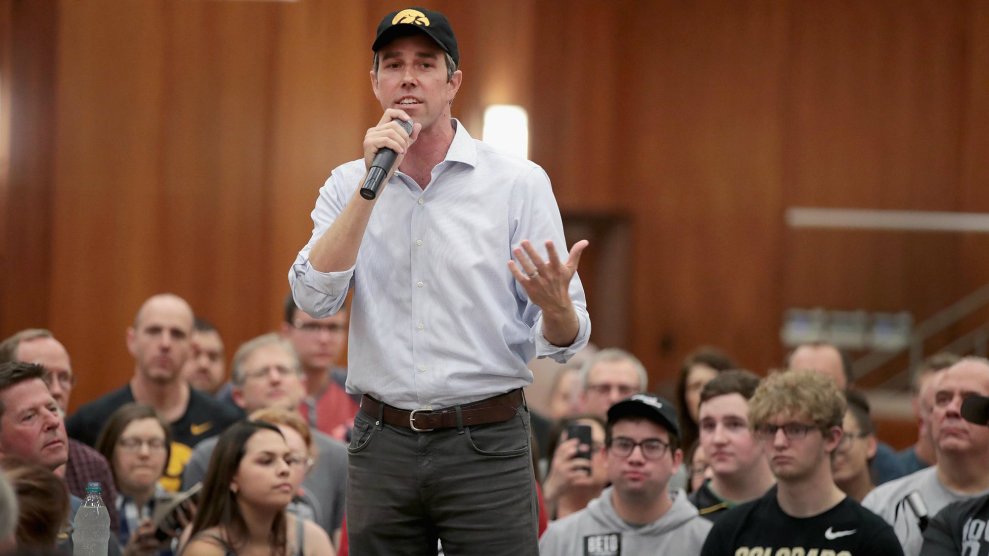
Democratic presidential candidate Beto O'Rourke addresses a party at a hotel in Richmond, Virginia. Bob Brown/Richmond Times-Dispatch/AP
At a recent campaign stop at the University of Virginia, a student asked former Texas congressman and 2020 Democratic candidate Beto O’Rourke about his recently released his tax returns and the paltry deduction he claimed for charitable contributions. Why did O’Rourke give so little to charity compared to the student’s sister, a recent college graduate who makes seven times less than he did?
“I do my best to contribute to the success of my community, of my state, and now of my country,” O’Rourke said, making it clear that the little money he’s given to charity in recent years paled in comparison to his commitment to public service for the last 14 years. “There are ways that I do this that are immeasurable and there are ways that I do this that are measurable. There are charities that we donate to that we’ve recorded and itemized, others that we’ve donated to that we have not.”
"We were wondering why, as someone who earns 7 times the amount of income as she, a recent college graduate does, gives less in charitable donations than she does?"
WATCH: Beto O'Rourke answers voter's question about his charitable donations https://t.co/XFmHD8Eozc pic.twitter.com/oXH5ifk63i
— The Hill (@thehill) April 17, 2019
Earlier this week, O’Rourke joined the roster of 2020 Democratic presidential candidates who have released their tax returns while demanding that President Donald Trump do the same. Beyond providing insights into each candidate’s wealth—notably, Sen. Bernie Sanders (I-Vt.), who often calls for America’s wealthiest to pay their fair share, was revealed to be a millionaire after his best-selling books— the tax returns offer a sense of just how generous candidates have been, though not specifically to whom.
Citing 2018 returns, CNN noted that Sen. Elizabeth Warren (D-Mass.) and her husband gave $50,128 to charity, six percent of her income, while Sanders and his wife donated $18,950 in 2018. Of the major candidates who have released tax returns, Warren claimed the biggest charitable donations while others like Sen. Amy Klobuchar (D-Minn.), Sen. Kamala Harris (D-Calif.), and Sen. Kirsten Gillibrand (D-N.Y.) gave less than 2 percent of their incomes to charity, the Washington Post reported. In comparison, Americans donate on average 2 percent of their income to charity.
And O’Rourke? In 2017, the most recent year provided by the campaign, the O’Rourke’s donated $1,667 or .3 percent of his and his wife’s gross income of $366,455.
CNN noted that there was just one year when the O’Rourke’s were a bit more generous; in 2013 they donated gave $12,900. But what’s money in comparison to good works? At another campaign stop in northern Virginia, O’Rourke explained that his family had volunteered at a migrant shelter in Texas, telling supporters that he tries to “to contribute and serve in every way that I can.”













